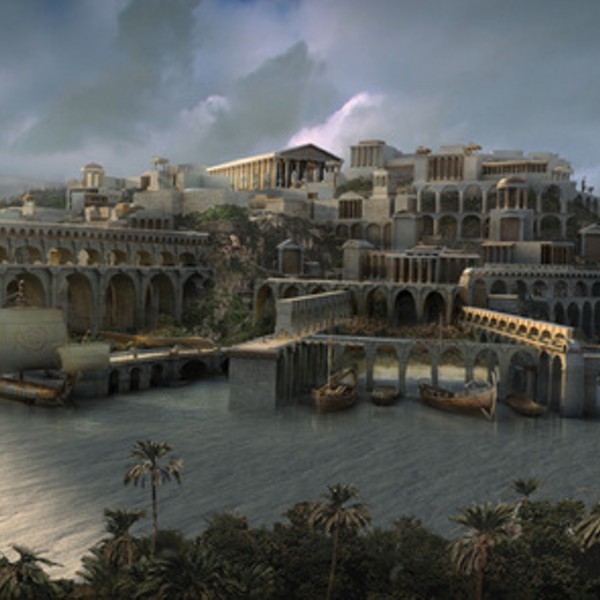In the chart for the start-up for the Large Hadron Collider, Atlantis shows up in an interesting configuration: First of all, it’s in Scorpio, making it a deep influence encrypted in our DNA. It’s in the 2nd house, indicating a values system. It’s conjunct is an asteroid called (443) Photographica. I am sure the people who worked on this project would not be flattered to hear it called a glorified camera, but here we have an image of just that: It’s designed to take pictures of the conditions that it creates, including conditions at the beginning of the universe. If we’re looking for a God particle, then presumably we are looking for a picture of God. Atlantis/Photographica also conjuncts with one of the fates, Klotho, which minor planet astrologer Martha Wescott tells us is about the conditions at the beginning.
This setup is opposite Atropos (root of the word atrophy), which is about the conditions at the end; and Asbolus, the common struggle of survival shared by all living things, related to how all living things contain carbon. So we have a picture of the beginning and the end suggested in the same chart, clustering around this theme of Atlantis.
These are tightly square to the asteroid (128) Nemesis, which is in Aquarius. Nemesis in Greek mythology, says Wikipedia, “was the spirit of divine retribution against those who succumb to hubris, vengeful fate personified as a remorseless goddess. The name Nemesis is related to the Greek word meaning ‘to give what is due.’”
In Conversations with God by Neale Donald Walsh, there is a part that I think of as the Atlantis passage. “As I have said, this isn’t the first time your civilization has been at this brink,” God says. “Once before on your planet, the technology you developed was far greater than your ability to use it responsibly. You are approaching the same point in human history again. Your society is on the verge of becoming a product of your technology rather than your technology being a product of your society. When a society becomes a product of its own technology, it destroys itself.”
Atlantis and the Apocalypse
We live in times that many people with a long future are thinking of as the “end times,” and also in times that are actually apocalyptic for others. For example, this includes tribes whose homelands are being wiped out by the logging of the Amazon, or entire societies that were lost to the Asian tsunami in December 2004.
For those of us in Western civilization who have food to eat and warm beds to sleep in, the apocalypse functions as a psychological factor. It’s the projection of the fear of individual death onto the whole society. Those who can’t process or address their own fear of death are the ones most likely to have to project it onto everyone else.
To me this is why Rapture Christians are so scary: They cannot conceive of themselves dying; they fear hellfire and damnation; we all have to go at once. I guess it’s easier for them that way (it’s the same basic psychology as the murder-suicides we read about in shopping malls). When you mix this up with religion, politics and the atomic bomb, that is certifiably scary. Nobody who has the Apocalypse in their personal belief system should be allowed anywhere near the controls for the atomic bomb.
Sometimes things get so weird that we need to look to mythology for a reflection, as a means of understanding what we’re going through. J.R.R. Tolkien has a little-known book called Akallabeth, about the fictional fall of the kingdom of Numenor. It’s one of the books leading into The Lord of the Rings. We have all met Strider or Aragorn, who is a direct descendent of Numenorian refugees who fled the destruction of their continent. This is Tolkien’s story of Atlantis.
















